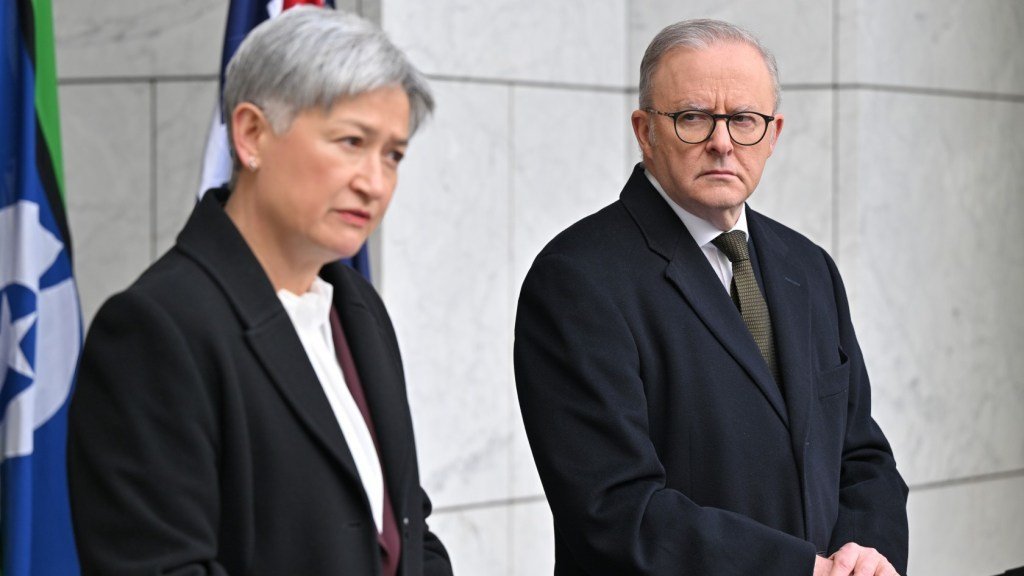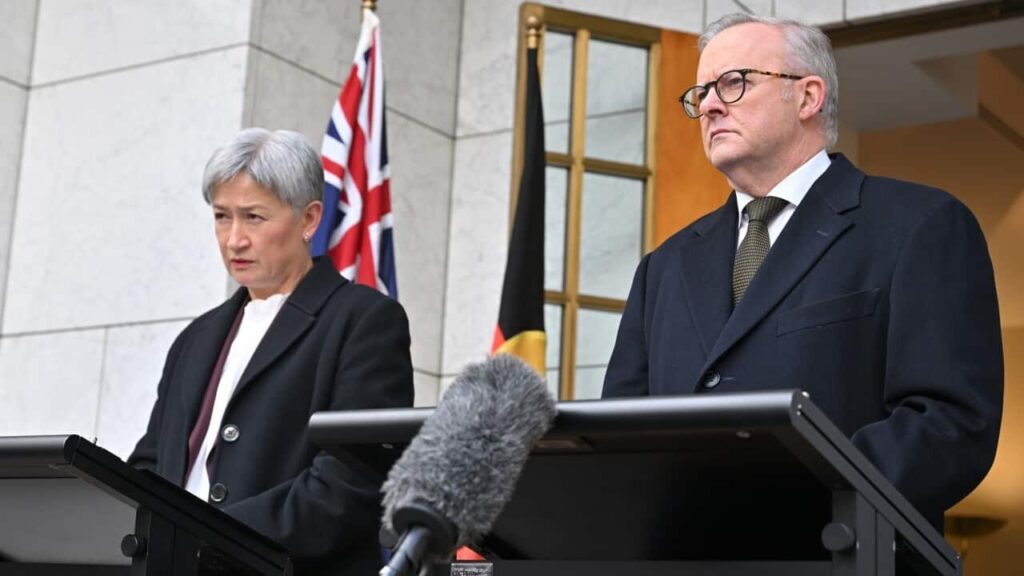Palestinian Statehood: The Hollow Promise That’s Left Many Feeling Betrayed and Enraged
- At least 157 UN member states now recognise Palestine, but for many Palestinians, it’s a meaningless gesture that doesn’t address the brutal reality of Israeli occupation.
- Osama Khatib, a Palestinian resident, slams Western nations for their belated recognition, saying “You declare me, so I exist? I exist already.”
- The Israeli government, led by Prime Minister Benjamin Netanyahu, is set to expand its settlement of Palestinian territory, effectively burying the prospect of a Palestinian state.
As the world watches, the Palestinian people are still trapped in a never-ending cycle of oppression, with their basic human rights consistently denied. The recent recognition of Palestinian statehood by countries like Australia has been met with a mixture of emotions, ranging from relief to outright disgust.
For many Palestinians, the recognition is a hollow promise that doesn’t address the brutal reality of Israeli occupation. “We do not need a country now, we need justice,” Osama Khatib told the ABC in Ramallah. “You declare me, so I exist? I exist already. But if you don’t declare me, I’m not found and I’m not going to exist?”
The Israeli government, led by Prime Minister Benjamin Netanyahu, is set to expand its settlement of Palestinian territory, effectively burying the prospect of a Palestinian state. “We doubled Jewish settlement in Judea and Samaria — and we will continue on this path,” Netanyahu said, referring to the West Bank.
The expansion of settlements is just one of the many obstacles facing the Palestinian people. The Israeli government also controls the international border crossing between the West Bank and Jordan, and Palestinian Authority President Mahmoud Abbas has to drive to Amman airport in Jordan to travel anywhere internationally.

East Jerusalem, widely recognised internationally as Palestinian territory, is seized and occupied by Israel, with over 200,000 Jewish settlers living in the area. The United Nations says there are more than half a million Jewish settlers living in communities and outposts in the West Bank, with many more set to follow.
For Ghasan Musallam, a former Gaza resident, the recognition of a Palestinian state is a welcome development, but it will have little tangible effect for Palestinians struggling to survive. “The recognition of a Palestinian state — it’s OK for educated people, but not good for people who cannot find a tent to protect himself and his family, and can’t find anything to eat, can’t even find bread,” he said.
The growth in settlements and outposts has led to situations where water has been cut off to some small Palestinian communities, with Israeli utility companies supplying the bulk of the water to the West Bank cities. The Israeli government also collects tax on behalf of the Palestinian Authority, but has withheld much of that money in recent years.
Far-right Finance Minister Bezalel Smotrich has control over the purse strings and has insisted on transferring what funds Israel is prepared to release to Norway as an intermediary. He’s the same man agitating for annexation of large swathes of the West Bank — more than 80 per cent — in response to the international push to recognise Palestinian statehood.
As the international community continues to grapple with the complexities of the Israeli-Palestinian conflict, one thing is clear: the Palestinian people will not be silenced. “If it’s not today, maybe tomorrow, maybe the next month, maybe after two, three years, ten years, but only one thing is true — [Palestine] will be free one day,” said Yazan Hmeid, a former Gazan now living in the West Bank.
For Rima Towil, the recognition of a Palestinian state by Australia is a step in the right direction, but it’s just the beginning. “At least we arrived [at recognition]. It doesn’t matter, late is OK,” she said. “Australia, the people, they stand with us, they protested for us, for my nation, for our case. They accept my country. Even if it’s late, there’s no problem.”

